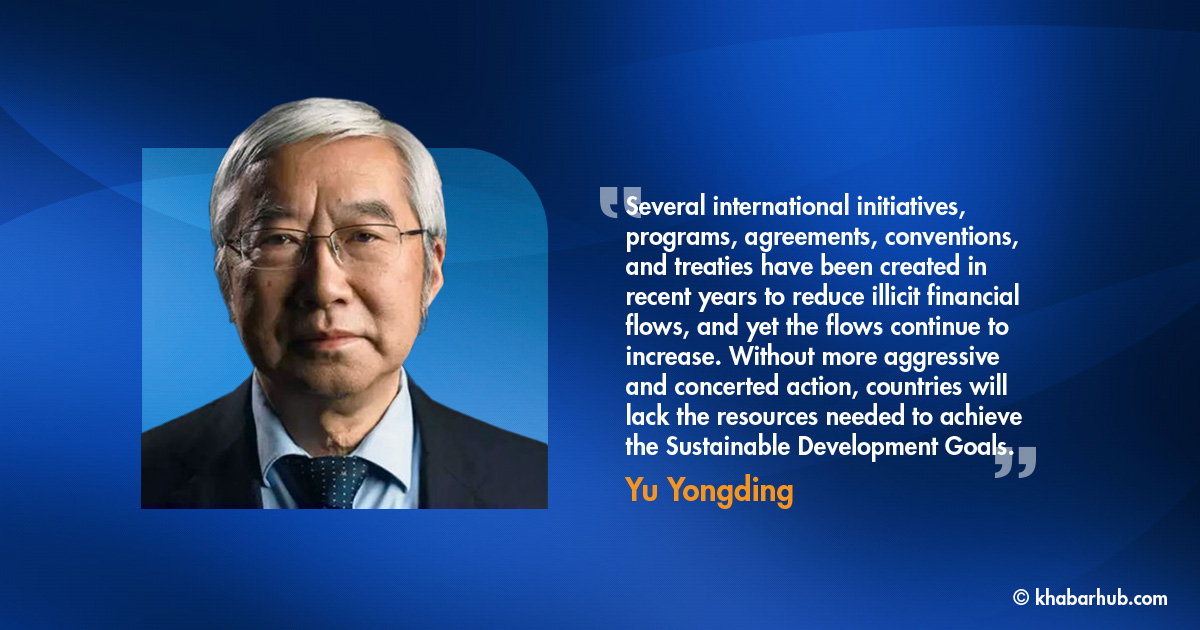On September 25, 2015, the world’s heads of state and government unanimously adopted the 2030 Agenda for Sustainable Development – a sweeping global blueprint for building a more equitable and sustainable world.
But, more than five years later, progress toward the agenda’s 17 Sustainable Development Goals leaves much to be desired.
Among the biggest constraints for countries striving to achieve the SDGs is the lack of financial resources. Even before the COVID-19 pandemic, many low- and middle-income countries were showing signs of debt distress.
As they struggle to cope with simultaneous public-health and economic crises, mobilizing financial resources for sustainable development is an even more difficult proposition.
Of course, there are ways to raise funds. Countries can increase domestic savings, court foreign investment, and seek development assistance from rich countries, international organizations, and multilateral development banks.
But doing so is never easy – especially in a world where illicit financial flows flourish.
Governments have three main lines of defense against illicit financial flows. The first is to reduce how much illicit money there is, by clamping down on corruption.
In 2015, Gabriel Zucman estimated that at least $7.6 trillion of the world’s private wealth was held in tax havens, equivalent to 8% of global household financial assets.
That figure had grown by a staggering 25% in the previous five years, which suggests that it is likely to be significantly higher today. In 2017, the National Bureau of Economic Research reported that about 10% of the world’s GDP was held in offshore tax havens.
Illicit financial outflows not only drain low-income countries’ financial resources for development, but may also undermine the willingness of donor countries to provide more development assistance.
More broadly, while a number of international initiatives, programs, agreements, conventions, and treaties have been created in recent years to reduce illicit financial flows, they have proved far from adequate.
Governments have three main lines of defense against illicit financial flows. The first is to reduce how much illicit money there is, by clamping down on corruption.
Beyond blatant crime – for example, tax evasion, bribery, and embezzlement of public assets – such an effort would have to address more subtle maneuvers, such as multinational companies’ exploitation of loopholes in the tax code.
Tax avoidance by multinationals undermines countries’ ability to finance development at least as much – if not more – than outright corruption.
The second line of defense is careful management of cross-border capital flows. Keeping illicit money in its country of origin makes corruption less rewarding – and thus less appealing.
But, again, blatantly illegal activities are only part of the problem. Legal or not, capital flight drains government coffers and can even trigger financial or currency crises.
Finally, governments must aggressively track, seize, and repatriate illicit funds that have evaded capital controls.
The problem is that recovering such funds is very complicated, costly, and, at times, contentious, owing to mistrust among countries. Given this, very little stolen money has been returned to its rightful owners.
More broadly, while a number of international initiatives, programs, agreements, conventions, and treaties have been created in recent years to reduce illicit financial flows, they have proved far from adequate.
The FACTI Panel also advocates far greater international cooperation, such as the establishment of global tax norms, particularly transparency standards, through an “open and inclusive” legal instrument.
But there is reason to hope this will soon change. Last year, Volkan Bozkir, President of the United Nations General Assembly, and Munir Akram, President of the UN’s Economic and Social Council, convened a High-Level Panel on International Financial Accountability, Transparency, and Integrity for Achieving the 2030 Agenda.
Now, the FACTI Panel has released a comprehensive report, which includes 14 evidence-based recommendations for strengthening the global financial architecture to support sustainable development.
For example, the panel urges all countries to enact legislation providing for the widest possible range of legal tools to be used to hold perpetrators accountable for cross-border financial crimes.
They also argue that governments should create robust and coordinated governance mechanisms to reinforce financial integrity.
The FACTI Panel also advocates far greater international cooperation, such as the establishment of global tax norms, particularly transparency standards, through an “open and inclusive” legal instrument.
And it recommends creating an impartial mechanism to resolve international tax disputes, under the UN Tax Convention, and an inclusive global coordination mechanism at the UN Economic and Social Council to address financial integrity on a systemic level.
Implementing the FACTI Panel’s recommendations will not be easy. But the UN’s effort to find solutions is undoubtedly a step in the right direction. If it can get the international community on board, we may yet have a chance of securing the resources needed to achieve the SDGs.
(Yu Yongding, a former president of the China Society of World Economics and director of the Institute of World Economics and Politics at the Chinese Academy of Social Sciences, served on the Monetary Policy Committee of the People’s Bank of China from 2004 to 2006)
Copyright: Project Syndicate









Comment